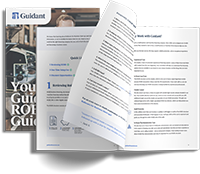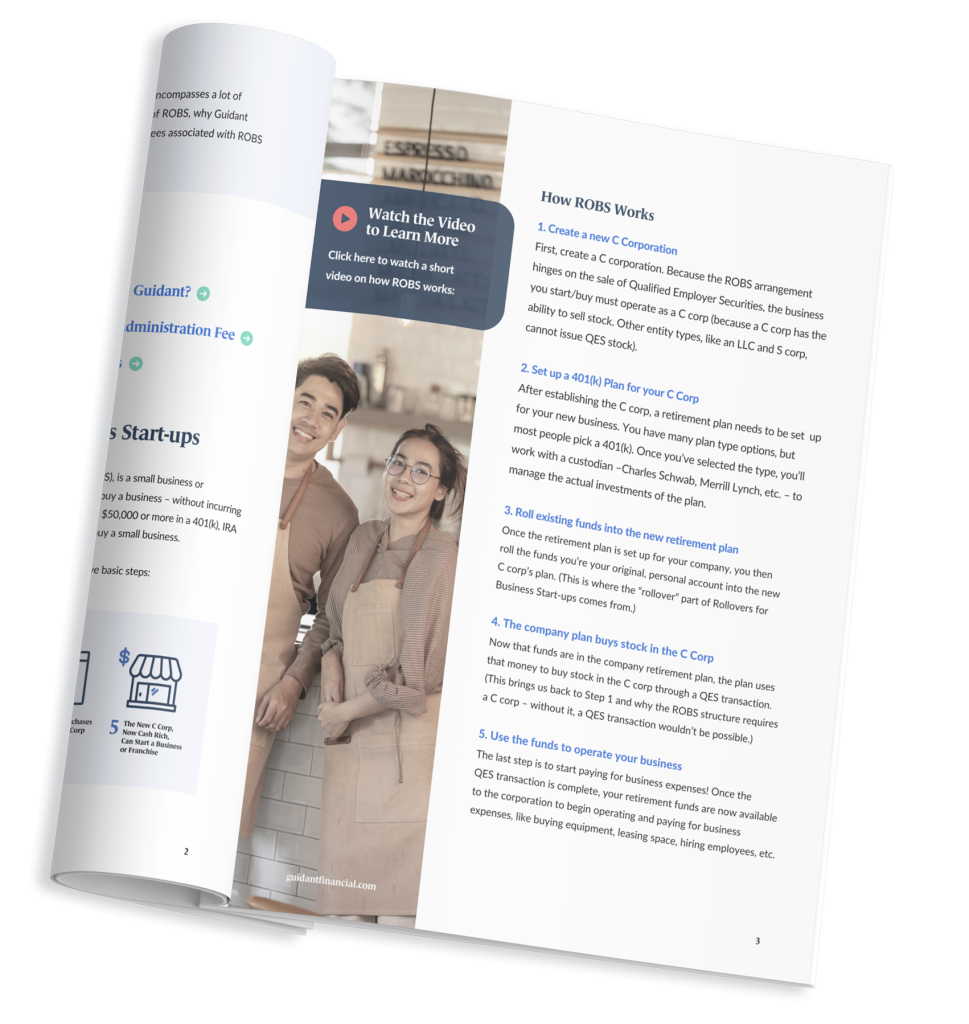You’ve made personal resolutions for the new year, but what about business resolutions for the new year?
While you can’t plan for everything, the new year is a natural time for business owners to reflect on what worked the past year and create goals for the upcoming year. It’s the perfect time to set realistic goals and revisit your business and marketing plan, among other items on your list. While your business to-do list may be long, one area to pay particular attention to is your financial practices. After all, you need a healthy bottom line to thrive in the business world.
To help you get started on the right foot in 2022, we talked to Katelyn Magnuson, owner of The Freelance CFO and an expert in small business finances. Here are the five financial resolutions you should consider implementing for the new year:
1. Take a Salary for Yourself
Some small business owners are so focused on their business, they forget to pay themselves. Magnuson explained that there are typically two reasons why business owners won’t take official salaries: “Either their income is variable or unreliable, or they’ve co-mingled personal or business accounts. In either case, what they take or are taking becomes muddled.” This makes it more challenging to keep up with your financial records, and it doesn’t align well with scaling your business, which often requires more careful bookkeeping.
Actionable Goal
Take 50% of what you make as an owner salary to start.
Solution
A qualified CPA can help you establish a reasonable salary that you should pay yourself, but Magnuson recommends taking no more than 50% of what the business makes as a salary. To make this easy, smart business leaders set up payroll software that will pay out your salary throughout the year, positioning yourself as an employee with a W2. Digital technology makes streamlining payroll easier than ever today.
2. Ask for Help from a Tax Professional.
Taxes are often relatively straightforward when you’re a traditional employee, but business-related taxes are another matter. Making your taxes easier to pay is always a smart business goal. Magnuson explained that when it comes to tax season, many of her clients struggle. She said that many are confused about deductibles and business expenses, along with how to manage the crossover of business and personal finances.
Actionable Goal
Get help from a CPA specializing in small businesses.
Solution
Having a qualified CPA who has a background in small business walk you through your finances can be a gamechanger. In many cases, a CPA will be able to help you come up with a list of deductions you didn’t know you qualified for or suggest a different business structure that may result in significant tax savings.
A CPA can also ensure that you know what you’ll owe long before tax time and keep you from making any mistakes that will land you with penalty fees if you get audited.
If you don’t have a referral for a CPA, you can use a database like AICPA to find one near you.
3. Prioritize Retirement.
More than one-third of all business owners don’t currently have a retirement plan in place.
Plenty of business owners have a lot of financial decisions to make, and some may struggle to decide how much to put into savings and how much to reinvest back into their business. This can result in neglecting your retirement accounts. And the later you start contributions, the harder it is to catch up.
Actionable Goal
Start saving for retirement now, even if it’s just 5% of what you make per year.
Solution
Starting early is key when it comes to retirement because you can benefit from compounding interest.
“Taking care of [your] future selves almost always falls to the wayside,” said Magnuson. “I can’t stress what a difference even 5% per year in savings can make when compounded over 20, 30, or 40 years,” she explains.
Even if funds are tight, try to get as close as you can to the maximum contribution limit for your retirement account each year. Keep in mind that you can always consider other options for business funding like small business credit cards so that you can invest money into your business without sacrificing your personal future.
Tip: When applying for a business credit card, make sure you understand that some cards may also pull your personal credit during the approval review process.
Roth IRAs are a popular savings vehicle for small business owners because they offer more flexibility than traditional IRAs. That being said, you can’t deduct contributions from your taxes with a Roth like you can with other types of retirement accounts, so talk to your accountant about what’s best for you.
4. Protect Your Business.
Struggle: It’s not uncommon for small business owners to be so excited about getting things up and running that they don’t worry about how to protect themselves legally or financially. This can be a mistake – there are plenty of risks that business owners should be protecting themselves from.
This includes clients who cancel big orders and don’t want to pay, clients or vendors who try to sue you for reasons that may include injuries on company property or with your company’s equipment, perceived breach of contract, or someone claiming you’ve infringed on their intellectual property.
Actionable Goal
Create a business plan to best protect your business and yourself from financial threats.
Solution
The first thing you should do is to set up a business designation. Multiple types of business structures exist, and some will offer financial protection for your personal assets – while others will leave you vulnerable.
LLCs, for example, can help you create a slight separation between personal and business assets, but only if you actually keep the two separate. Set up a separate bank account and credit cards for your business, and don’t mix them with personal funds.
Magnuson points out that separate accounts are the best approach, regardless of your business entity or personal lives. “The number one mistake I see is small business owners not separating their personal and business finances,” Magnuson said. “Even if they’re a sole proprietor, setting up a separate checking account is the bare minimum any business owner should be doing.”
Tip: Learn more about business entities and how to determine the right business structure for your business.
Finally, you probably won’t need a lawyer on retainer, but it’s worth establishing a relationship with someone you trust who you can turn to in an emergency or for basic business concerns, like reviewing contracts.
5. Stay on Top of Cash Flow.
Intermittent cash flow can be a common problem for small businesses, especially if clients are paying late. You don’t have a standard set paycheck coming in every few weeks, so the ups and downs of income can be hard on businesses.
Actionable Goal
Have a business plan in place for slower seasons or dips in cash flow.
Solution
Keep a watchful eye on your cash flow, knowing what bills you’ll have coming in before you splurge on a new business expense. Invoice and expense tracking software like FreshBooks or QuickBooks will help with this, making it easy for you to see the projected income you may have coming in and what expenses are coming your way, too.
While sometimes cash flow problems can be inevitable, careful planning based on realistic financial projections can be useful. A qualified CPA can help you set up relatively accurate projections based on your current performance and overall business trends from previous years.
If cash flow is consistently a problem, look at different funding options. You can consider taking out a small business loan, especially if you need to make a few investments into your business so that it can scale to a point where it will be more consistently profitable.
You can apply for small business loans through traditional banks, local credit unions, and online lenders. Applying through an online lender can typically be a faster and more convenient process, and they may have less stringent requirements than conventional banks. Conventional loans from traditional banks, however, may be able to grant you more capital and they may be able to do so at a slightly lower interest rate.
Guidant Financial has several types of small business loans you can read more about, from Rollovers as Small Business Startups, or 401k business financing, to SBA small business loans. Loans through the Small Business Administration (SBA) are backed by the government and come with low rates and long terms, though they have more stringent requirements.
Ana Gotter is a business and financial writer with years of experience creating content on topics including personal loans, financial planning, business management, and business finances.
















